What is GENERAL Computer Science all about?
In the Computer Science General Course students are introduced to the fundamental principles, concepts and skills within the field of computing. They learn how to diagnose and solve problems while exploring the building blocks of computing. Students explore the principles related to the creation of computer and information systems; software development; the connectivity between computers; the management of data; the development of database systems; and the moral and ethical considerations for the use of computer systems. This course provides students with the practical and technical skills that equip them to function effectively in a world where these attributes are vital for employability and daily life in a technological society.
Who should select these units in Year 11?
Students who enjoy learning about all things related to computing and would like to develop theirs skills in the area. This course is very different to General Applied Information Technology, in that this course primarily deals with computing and how computers work whereas in General AIT, the course is more about using the technology.
Pathway
Should students successfully complete this course, they will be able to enrol into General Computer Science Units 3 & 4 in Year 12.
Areas of Study
UNIT 1 – Personal Use of Computer Systems
- Systems analysis and development
- Managing Data
UNIT 2 – Personal use of Communication and Information Systems
- Developing Software
- Programming
- Networks & Communication
To provide for different learning styles a variety of assessment tasks are used. For each course of study tasks are selected from:
- Projects (60%)
- Theory Test (20%)
- Practical Test (20%)
What is GENERAL Computer Science all about?
The Computer Science General course focuses on the fundamental principles, concepts and skills within the computing field, and provides students with opportunities to develop flexibility and adaptability in the application of these in the roles of developers and users. This course focuses on developing computer-based systems solutions and communications. Students are introduced to the internal, interrelating components of computer-based systems and networking concepts, as applied to industry. Students examine a variety of systems, build on spreadsheet and database skills and gain an appreciation of how these concepts and technologies are used in industry. Students will develop programming skills through the use of algorithms and create solutions exploring the ethical, legal and societal implications of industry-based applications.
Who should select these units in Year 12?
An understanding of the Year 11 content is assumed knowledge for students in Year 12. It is recommended, however not compulsory, that students studying Unit 3 and Unit 4 have completed Unit 1 and Unit 2.
Pathway
Successful completion of these units will enable students to proactively participate within a business, behave responsibly and demonstrate integrity in business activities.
Areas of Study
UNIT 3 – Developing computer-based systems and producing spreadsheet and database solutions
- System Analysis and Development – project management, system development methodologies and context diagrams
- Managing Data – spreadsheets and databases
UNIT 4 – Developing computer-based solutions and communications
- Developing Software – software, licensing and software development lifecycle.
- Programming – control structures, errors, data validation, pseudo code and programming a solution.
- Networks and Communications –types & hardware, protocols and security
To provide for different learning styles a variety of assessment tasks are used. For each course of study tasks are selected from:
- Business Research (40%)
- Business report or plan
- Project plans
- Survey Data
- Response (45%)
- Case Study
- Tests
- Externally set task (15%)

